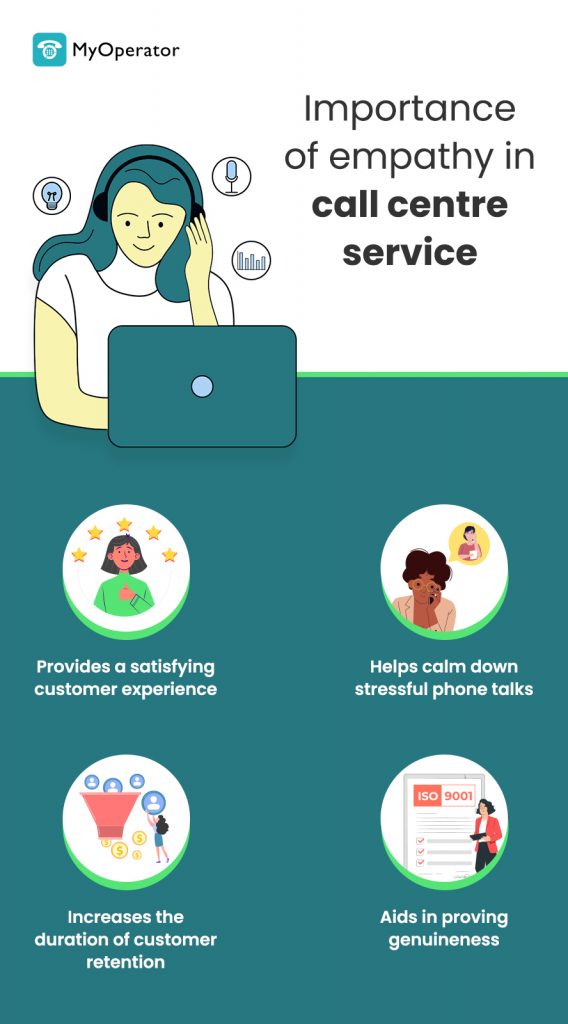The call center is the foundation of your sales and support operations. And it requires diligent and ongoing monitoring. To manage your customer experience effectively, you need to track and measure metrics that are essential to determining call center Service and agents’ performance consistently.

Why is the evaluation of call center performance important?
Your call center is integrated with other aspects of your business like never before. Call centers don’t operate in vacuums. Instead, they are closely aligned with marketing, sales, manufacturing, and other departments so that they can improve customer experience. What happens or fails to happen in your call center allows your business to succeed just as easily as it can ruin your reputation.
What performance measures are most important?
There are two primary points that you should consider when evaluating a call center for performance. First is analyzing call centers which involves analyzing and capturing performance. To determine whether your call center is succeeding, several metrics should be reviewed consistently:
First Call Resolution
How often do your customers obtain a resolution during the first call? This metric is closely linked to customer satisfaction. Call centers that have a high first call resolution rate tend to have low operating costs and high customer + employee satisfaction.
Response time
How quickly do agents handle customer interactions? This essential metric can be measured by minutes, hours, or days to determine the number of resources needed for field calls effectively. Most industry experts consider response time to be a vital metric in customer experience strategy when they dial the call centre services india. Fast response time reflects good customer service. Call efficiency needs to be followed up with call management to improve customer satisfaction and loyalty.
Accessibility to self-service
Self-service channels are increasingly becoming embraced by customers because they offer convenience and speed. For businesses, they improve service efficiency while reducing costs. Adding an IVR service in your call center helpline’s call flow is a great way to add a self-service option for your callers. However, you shouldn’t deploy and forget these channels. Similar to assisted-service channels, your self-service channel system requires constant evaluation to determine if they assist customers effectively.
If your cloud call center solution heavily relies on self-service channels, you need to watch for siloes, glitches, and hindrances that prevent customers from using self-assisted service when they want to escalate issues. Specialized monitoring tools can help in identifying weaknesses and failures that need immediate addressal.
Customer satisfaction
Measuring and evaluating customer satisfaction shouldn’t be a one-time task. Since customer preferences are shifting like never before, you need to grade their experiences while it’s fresh in their minds. Post-call surveys and IVR technologies will help you rate interactions on a numerical scale and provide opportunities for clients to give feedback. Advanced technological apps can be programmed to pick up cases when customers give a poor rating or send an alert to quality assurance. This will allow the manager to call the customer back to resolve issues and restore trust and loyalty.
Contact quality
By monitoring and recording interactions, contact quality can be easily evaluated to highlight what is working and what is not. Your key focus should include:
- Proper use of terminology, language, tone, and scripts
- Professionalism and courtesy
- Providing accurate information to customers
- Call coding and data entry accuracy

Following the schedule
This includes several metrics that evaluate the efficiency and performance of agents, including:
- Outbound calls
- Handling time
- Waiting for calls to arrive
- Performing after-call work
- Time taking breaks, lunch, and training
- Logging into the system
The average handling time and calls per hour used to be the most important metric in call centers. However, most of the time, they are not under the agents’ control. By combining qualitative and qualitative measuring capabilities, you can get a clear picture of quality delivery than blindly relying on numbers.
Forecasting accuracy
All call centers have peaks and downtimes in call volume. Evaluating the actual caller load versus the forecasted caller load is an essential metric that will allow you to effectively staff your call center to minimize queues and improve customer satisfaction.
Social media spills
This is a new call center metric that determines the number of customers that take to social media platforms to complain or comment about a service they did or didn’t receive when talking to the agents. Customers’ social posts, tweets, and mentions can help in highlighting call center failures in a way that—if not corrected— can have a negative impact on the brand in the long run.
Customers use different social media platforms to record the quality of services they get. Therefore, they should be monitored closely to manage feedback and comments and integrate with other channels of communication.
Evaluation through monitoring and metrics is an essential aspect of call center software management. Data collected and evaluated provides essential information as well as direction on how to improve customer service. It can also help in lowering employee turnover. With the appropriate tools to measure commitment effectively, you can gain a competitive edge over other businesses that manage operations without data guidance.
Improving call center quality
As you have seen, looking at how well your agents engage with their customers is essential to improving the performance of your call centers. Here are three important tips that will help you measure and improve the quality of customer interactions:
Cultivate empathy
When customers reach out to the call center for service, they want the agents to understand what they are going through. That’s where the need for empathy comes in. Empathy helps in delivering a creative, positive, and memorable customer service experience. Therefore, if a customer feels like the agent doesn’t care, they will not feel compelled to continue engaging with the organization. Empathy is essential especially when it comes to improving customer experience.
Empathy occurs when an agent celebrates the success of a customer. Having empathy for a customer’s situation will push the agent to help in easing customer’s pain by doing everything in their power to resolve the situation. You can measure if your agents were empathetic to customers using the following questions:
- Was the agent interested in what the customer said?
- Did they listen actively to the customer without interrupting them?
- Did the agent maintain a kind and respective tone of voice?
- Was the agent flexible while trying to meet the needs of the customer?
Go beyond
Call center agents can meet the needs of their customers by going beyond the interaction. Customers want to feel like the agent loves and appreciates them. When an agent goes beyond the set expectations, the customer will automatically know that they are valued and appreciated. Here are a few ways to measure whether the agent exceeded expectations:
- Were the needs of the customer addressed?
- Did they provide an excellent experience to the client?
- How did the client respond to their efforts to go beyond the set expectations?
Follow the organization procedures
Do your call agents adhere to the set procedures and protocols? Your customer might not be aware of these procedures. However, if an agent fails to provide accurate information or ignores company policies, it can negatively affect the company’s reputation and bottom line. You need to use a metric that measures the critical issues of the business and make sure that set procedures are followed. Here are a few questions that you should ask yourself:
- Does the agent understand their job?
- Did the agent provide accurate information?
- How did the agent handle requests outside their area of specialization?
- Did the agent act professionally?
Conclusion
The benefits that managers will get through call center quality assurance metrics cannot be ignored. There is a link between customer satisfaction and high financial performance.
Monitoring key factors of your call center will boost customer service, loyalty, and the effectiveness of agents. Measuring qualitative factors will help reduce employee turnover and business expenses in the long run. Do not be afraid to put the tips that we’ve discussed to the test today. This is the only way to figure out what works and what doesn’t.


